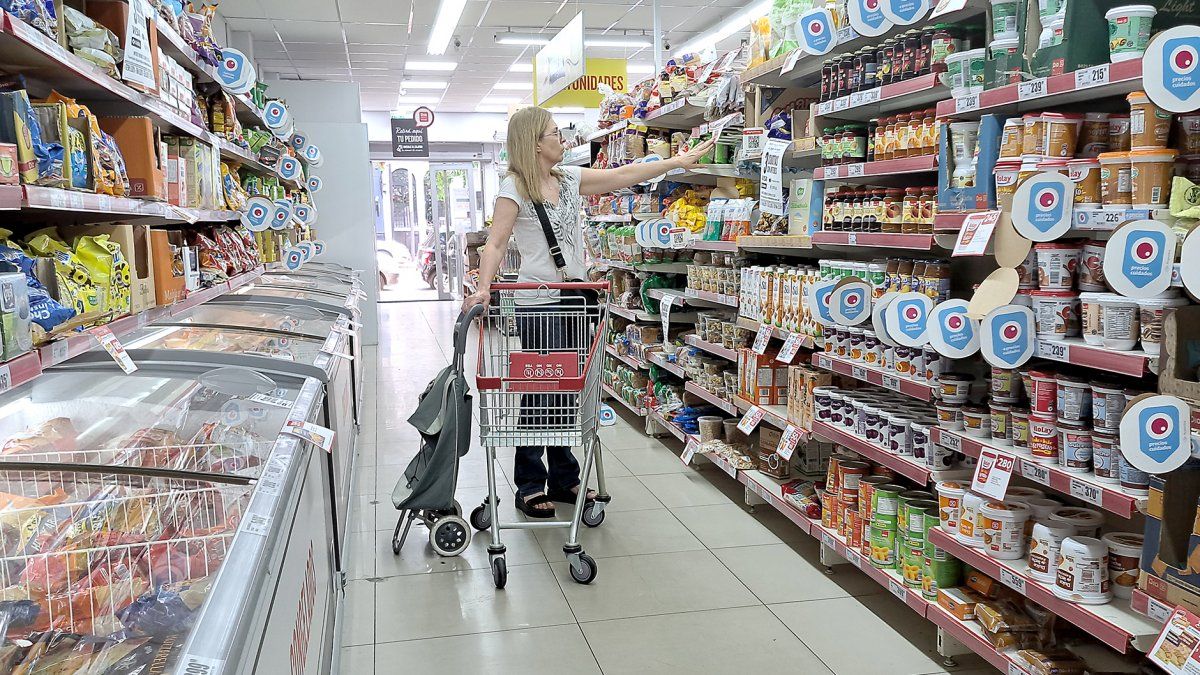The idea of the Palacio de Hacienda is clear: moderate preventive remarks and anchor inflation expectations at 4% per month. Although the October consumer price index, which will be announced by INDEC in the next few hours, will most likely show a very different reality. Private consultants estimate an advance close to 6.5%.
The diagnosis is that part of the price increase arises from what is called an “inertial” component. More linked to the fact that economic agents think more about future replacement cost than production cost. For this reason, each nominal crash in the consumer price index ends up practically setting a new floor for inflation in the following months.
“This is going to lower the inertia”, they affirmed in the Ministry of Economy when referring to the launched plan. “The idea is that every two months we can cut one point in inflation. This bimester at 6%, the next at 5% and then at 4%. We want to reach December 2023 with inflation close to 3%”, they completed.
Aligning expectations is not an easy task. But the Government puts on the table a central card to negotiate with companies: imports with dollars at official prices. In search of that carrot, more than a hundred food, beverage, cleaning and personal hygiene firms agreed to refer to the government guideline. Supermarkets will also collaborate in these sectors, which have promised not to accept lists with higher increases.
More sectors to “4×4”
But that path will not be traced only for the basic basket. The idea is to replicate this type of agreement with other sectorsas is already the case with medicines, electronic products, textiles and clothing. In some cases it may be directly with the 4% ceiling and in others there may be different variables such as the advance of the official exchange rate, which also grows below average inflation.
Economy Minister Sergio Massa presented Fair Prices on Friday together with large companies. On that occasion he took the opportunity to anticipate that work will be done on “agreements with the chains of disseminated inputs”. Something that, as anticipated Ambit days ago, multinational food manufacturing companies were asking for it. According to official sources detailed to this medium, some of the targeted products are glass, plastics and cardboardall of them sensitive in the packaging of articles of mass consumption.
In the Government, they are optimistic. The negotiating table will be punctual and decisive, they point out. The suppliers of these materials are less than a dozen companies. Once again, the carrot to attract them to the “4×4” will be access to the “green channel” of Customs, which guarantees expediting imports at the official exchange rate. This would also allow them to have predictability over part of their costs. In any case, the doubts of the private sector at this time is where all those dollars will come from in times of currency shortage.
Rubinstein defended the plan
The secretary of Economic Programming, Gabriel Rubinstein, who on other occasions questioned price freezes, including the one carried out last year by former secretary Roberto Feletti, defended the government’s plan to anchor expectations. He did it through his twitter account. “Fair Prices is not to eliminate inflation while the deficit increases, it is to lower it while the deficit is reduced,” he said.
Along the same lines, he added that “it is not from prepo, it is agreed with manufacturers, wholesalers and supermarkets.” He explained that 4% inflation would be “advance” compatible with the reduction of the fiscal deficit in accordance with “macro inflation.” In addition, he once again pointed out the high business margins, which from 30% in 2021 climbed to more than 40% in 2022.
Source: Ambito
David William is a talented author who has made a name for himself in the world of writing. He is a professional author who writes on a wide range of topics, from general interest to opinion news. David is currently working as a writer at 24 hours worlds where he brings his unique perspective and in-depth research to his articles, making them both informative and engaging.




